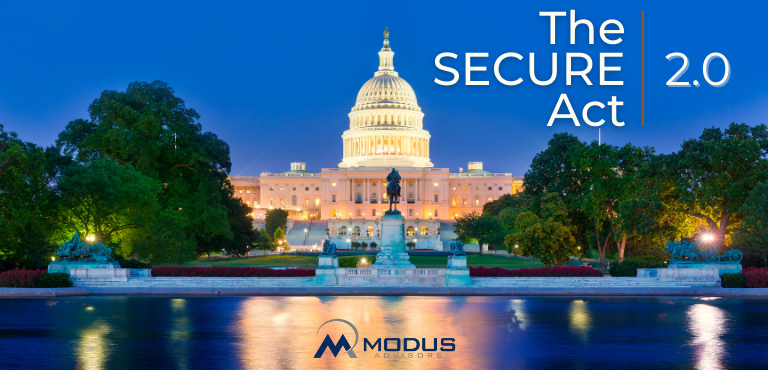What the SECURE 2.0 Act Means for You and Your Retirement
The Senate passed the SECURE 2.0 Act on Thursday, December 12th. The bill now goes to the House of Representatives for their vote. Assuming the House passes the bill, it then goes to President Biden, who signs it into law.
We summarized the 300 pages and 92 provisions that comprise SECURE 2.0. The SECURE 2.0 Act provisions break into three sections – provisions that will apply soon, those that affect employer plans in 2024 or later, and those that affect individuals in 2024 or later.
SECURE 2.0 Act Provisions that Apply Soon:
- For individuals who turn 72 after January 1st, 2023, SECURE Act 2.0 moves the distribution retirement age to 73. In 2033, the starting age for distributions moves to 75.
- For plans that offer a Roth contribution option, employees can now elect to pay tax on employer contributions and redefine employer contributions as Roth.
SECURE 2.0 Act Provisions Affecting Employer Plans in 2024 or Later:
- Any employee age 50+ who made more than $145,000 in the prior year must make catch-up contributions on an after-tax (Roth) basis.
- Roth contributions in an employer retirement plan will no longer be subject to plan distribution rules.
- SECURE 2.0 allows employees to link an emergency savings account of up to $2,500 to their defined contribution plan. That will be Roth money.
SECURE 2.0 Act Provisions Affecting Individuals in 2024 or Later:
- The catch-up limit will increase by 50% of the 50+ catch-up for employees between the age of 60-63.
- In 2024, employees below (or above) the 60-63 age limit can contribute $7,500 in catch-up contributions to their employer plan.
- Employees aged 60-63 can contribute $11,250 in catch-up contributions.
- You can now roll unused money in a 529 plan to a Roth IRA for the benefit of the 529 recipients.
- The amount rolled over is subject to Roth contribution limits, and the 529 must exist for 15+ years to qualify.
- One can roll $35,000 total over.
These are just a few points of the SECURE 2.0 Act. If we at Modus can answer any questions you have on this legislation or how it affects your retirement, please don’t hesitate to contact us.




